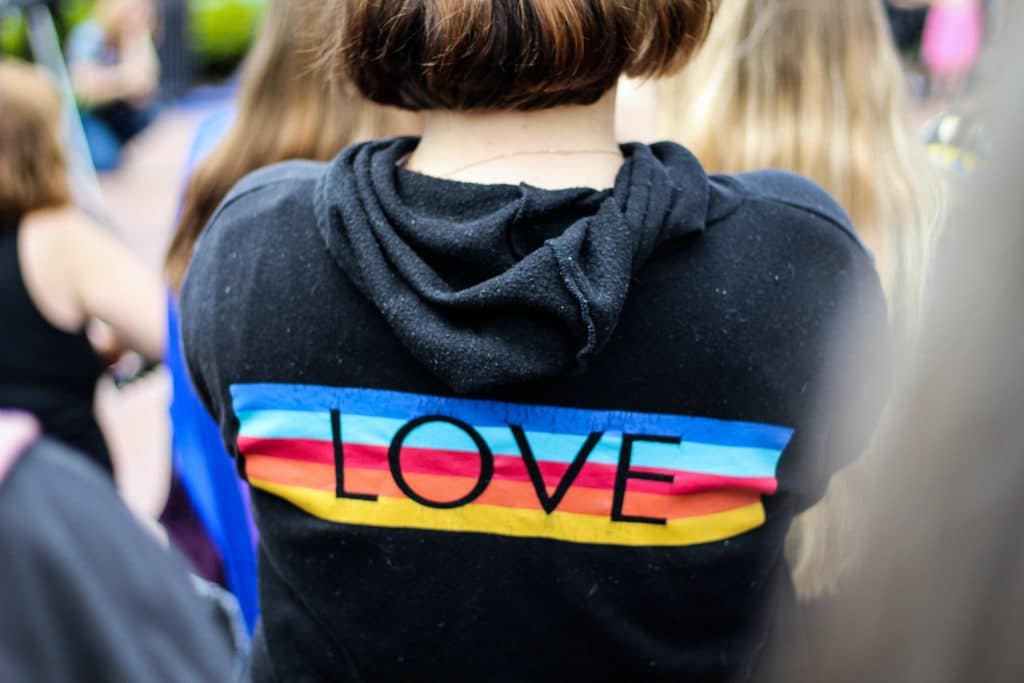Gender identity is expressed in a variety of ways by transgender people. Some people dress, act, and behave in ways that correspond to the gender they identify with. Some people use hormones and can undergo surgery to alter their bodies to match their gender identity. Some transgender people reject the conventional gender binary of “male” and “female,” instead of identifying as transgender, genderqueer, or entirely.
Transgender Relationship
Some people believe that the sex assigned to them at birth does not correspond to their gender identity or the gender they believe they are on the inside. These individuals are often referred to as transgender.

Effects of transitioning
Psychologists have researched and analyzed the experiences of individuals who have gone through a gender transformation, finding that hormone therapy enhanced psychological health and self-esteem, for example. However, there has been even less study on their spouses. However, according to a recent study published in the Journal of Social and Personal Relationships, they often go through their life transitions. While there are difficulties, there are positive changes as well.
Transsexual dating
Relationships are among the options. Transgender people, like everyone else, maybe single, in a relationship, or have multiple partners at any given time. Partners may be dating a transgender person during their gender transformation (exploration and transition), or they may appear later in the transgender person’s life.
Transgender people’s partners may or may not have sexual orientations that match their partner’s gender. For example, an FTM (female to male) who was once a member of the lesbian community may have strong social links to the lesbian community and a lesbian partner. The female partner can continue to be a lesbian, while the FTM partner can now be heterosexual or bisexual. An MTF (male to a female) married to a woman may also stay married during her transition. The MTF will now identify as a lesbian after transitioning, although the MTF’s wife will still identify as heterosexual.
Individuals who identify as gender non-conforming and their partners may have developed vocabulary to define their gender non-conformity and may feel equally encouraged to do so for their sexual orientation. Some younger people are reclaiming the term “queer” and using it to describe their sexual orientations (regardless of their partners’ gender), or they use words like “friends with benefits,” “heteroflexible,” “pansexual,” and “polyamorous” to describe their relationships.
Effects on ts dating after transitioning
When one person goes through a social or medical transition, partners almost always discuss sexual desire or behavior. Navigating a partnership’s shifting dynamics can be challenging even under the best of circumstances, and it can be even more difficult if either or both partners’ attraction changes.
Lisa Platt of West Virginia University and Kayla Bolland of New Mexico State University conducted semi-structured interviews with 21 transgender people’s spouses, including both female and male to female partners, as well as a group who identified as gender-neutral. The interviewees were mainly not heterosexual, lived in the United States or Canada. Included 13 cisgender women, two cisgender men, four transgender people, and two people with fluid or bi-gender identities.
Some of the interviewees had begun dating after their transgender partner had transitioned, while others had begun dating before their transgender partner had begun the transition process. While it’s a popular misconception that partnerships end when one of the partners switches gender, this isn’t always the case. For example, in one recent study, about half of a group of transgender men who were in a relationship before their transition stayed in that relationship after they transitioned.
“Discuss how your relationship has affected your sexual orientation, if at all?” was one of the open-ended questions asked during the interviews.” Many participants expressed real concerns about their transgender partners’ protection, such as physical assaults from strangers. However, they had reservations about their psychological well-being. According to the researchers, the majority had prior contacts in the transgender dating site like LGBTQ (Lesbian, Gay, Bisexual, Trans, and Queer) culture. Still, as a spouse of a transgender person, they felt excluded and marginalized.
The truth about Dating Transsexual Women
The truth about dating transsexual women explains why this occurs and how it can feel for the transwoman involved. Since seeing transwomen in porn, why do people like dating a transwoman? It’s quick to get caught up in imagination, but reality rarely resembles what you see on screen. You must distinguish between fantasy and fact, just as you must with porn. So dating a transgender person is hard, to the extent that entangling your life and emotions with another human being’s life and emotions is hard. Dating a cis individual is no different. However, the challenges that trans people have to face to live as their true self have given them a special insight, strength of character, bravery, and softness.

So, how do you go about dating a transwoman?
Here’s the thing: transwomen are human beings. Although they share the common characteristic of being assigned male at birth (AMAB), they easily diverge. There are some stereotypes that, if you foresee them, will come as a shock.
Stereotype belief: Transwomen are extra feminine, even more so than ciswomen, according to stereotype.
Reality: Transwomen are no different than ciswomen. Some of them are truly feminine (in the sense that they show conventional societal standards of femininity), while others are not. Transwomen are forced to fulfil gender roles in ways that society does not expect cis women to. Doctors have been known to refuse care to transwomen who aren’t “feminine enough.” Conforming to such standards can also be a way to stop abuse directed at diverse gendered individuals. Some of them are girly, and some are women without the need for traditional feminine trappings. Just as cis women can be women without the need for dresses, lipstick, or other traditional feminine trappings if you like dating a transwoman because you think she’ll be “more girly than other girls,” reality does not fit your standards. Even if it does, there may be problems lurking under the surface that isn’t what you’re looking for.
On the one hand, it would feel like being praised for your femininity can feel good and affirm your gender. On the other hand, it may feel confining, as though you must be feminine enough to pass in public and that your partner would reject you if you don’t perform gender well enough for them. The tension you bring in the outside world, which stems from your fear of failure, becomes stress you can’t escape with your partner. Worse, living with someone who demands that degree of femininity from you all of the time can cause significant self-doubt about whether or not the real you can ever be loved and embraced.
The worst feeling in a transgender relationship
What that might feel like: Having someone in your life telling you, “You should be grateful someone likes you at all,” is a nightmare. Worse still, believing it to be real, unfortunately, many transgender people are worn down enough to believe when we hear it. Good relationships boost your partner’s self-esteem and make them feel like they’ve found the perfect partner. Bad relationships tear people down, and they are scared that what they have is better than they deserve.
If you’re interested in dating transwomen, there’s only one thing you need to know: treat them the same way you treat cis women. Instead of making a big deal out of gender, quietly affirm that these are the type of women you’d like to date. People like dating transwomen, not because of their smiles or laughter or how they play video games, but because of whatever makes them special and valuable individuals. Demonstrate that you value them as women and people you want in your life because being together is preferable to being apart. If you do that, you could just meet someone who thinks life is better with you than it is without you.












Leave a Reply